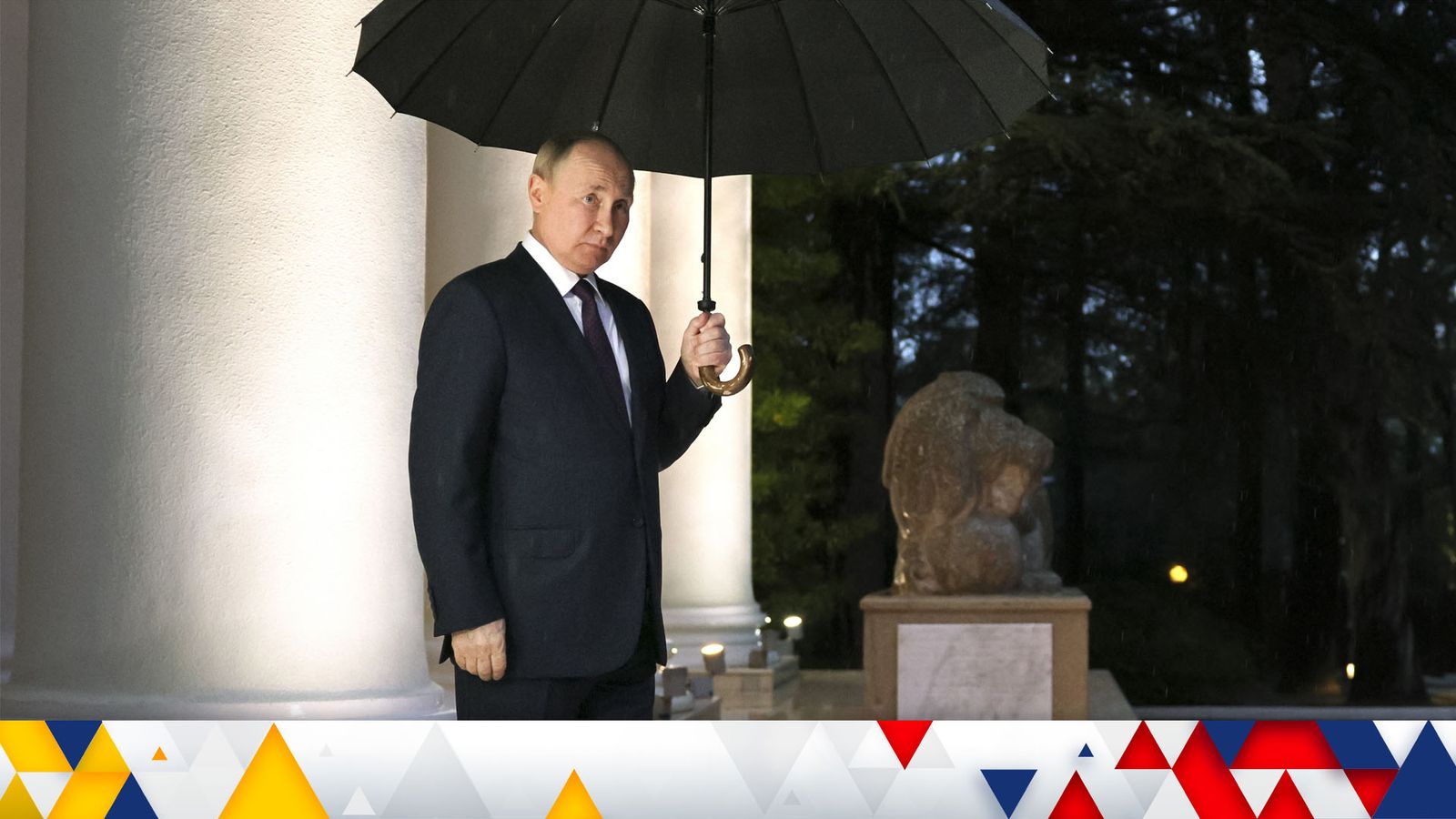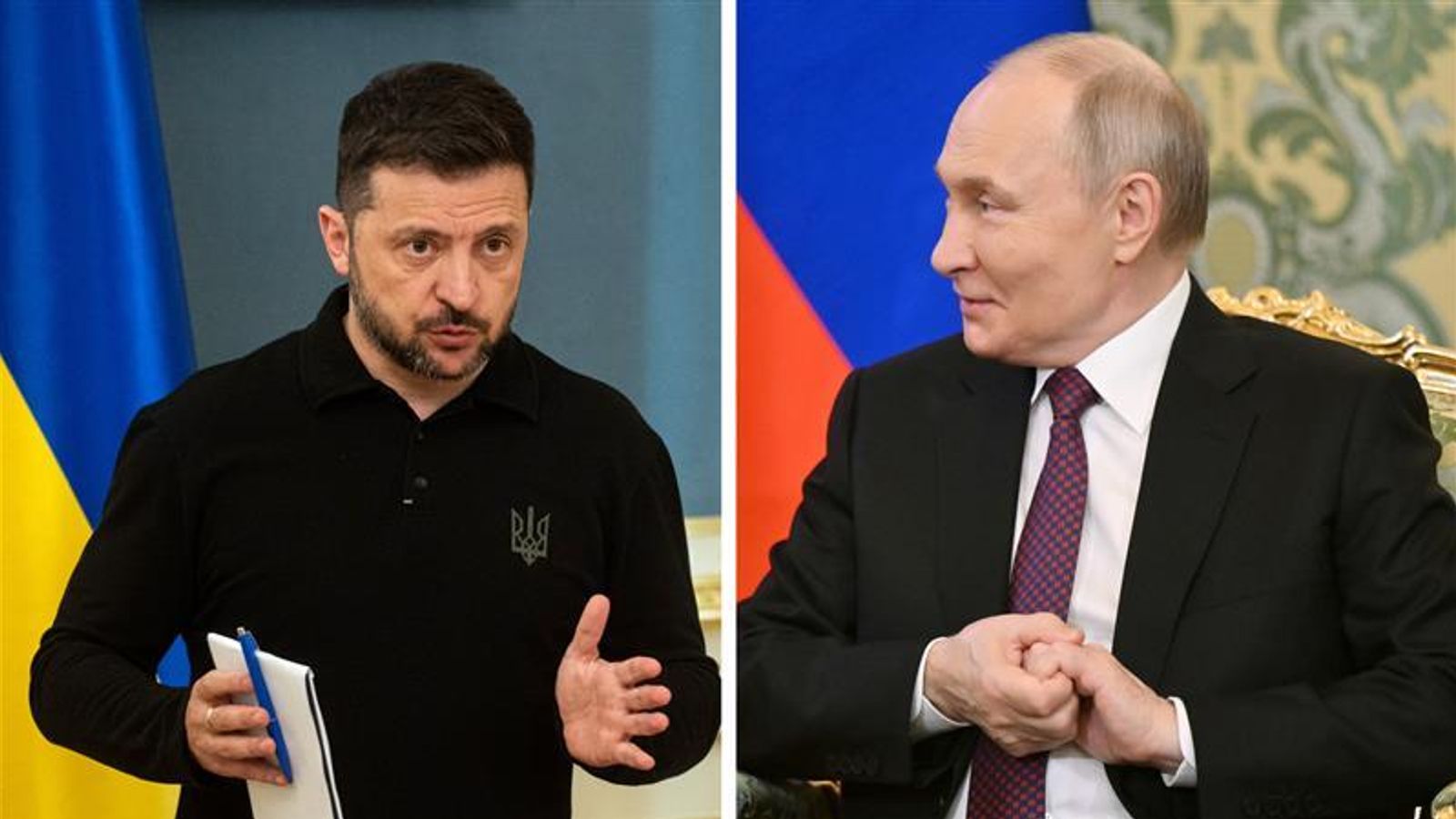Ebrahim Raisi: Who was hardliner Iranian president?


A helicopter carrying Iran’s president crashed during bad weather on Sunday – and reports now say Ebrahim Raisi has died.
But who was Ebrahim Raisi – a leader who faced sanctions from the US and other nations over his involvement in the mass execution of prisoners in 1988.
The president, 63, who was travelling alongside the foreign minister and two other key Iranian figures when their helicopter crashed, had been travelling across the far northwest of Iran following a visit to Azerbaijan.
Follow live: Rescuers search for president after helicopter crash
Mr Raisi was a hardliner and former head of the judiciary who some suggested could one day replace Supreme Leader Ayatollah Ali Khamenei.
Because of his part in the sentencing of thousands of prisoners of conscience to death back in the 1980s, he was nicknamed the Butcher of Tehran as he sat on the so-called Death Panel, for which he was then sanctioned by the US.
Both a revered and a controversial figure, Mr Raisi supported the country’s security services as they cracked down on all dissent, including in the aftermath of the 2022 death of Mahsa Amini – the woman who died after she was arrested for allegedly not wearing her hijab properly – and the nationwide protests that followed.
The months-long security crackdown killed more than 500 people and saw over 22,000 detained.

In March, a United Nations investigative panel found that Iran was responsible for the “physical violence” that led to Ms Amini’s death after her arrest for not wearing a hijab, or headscarf, to the liking of authorities.
Advertisement

The president also supported Iran’s unprecedented decision in April to launch a drone and missile attack on Israel amid its war with Hamas, the ruling militant group in Gaza responsible for the 7 October attacks which saw 1,200 people killed in southern Israel.
Involvement in mass executions
Mr Raisi was sanctioned by the US in part over his involvement in the mass execution of thousands of political prisoners in 1988 at the end of the bloody Iran-Iraq war.
Under the president, Iran now enriches uranium at nearly weapons-grade levels and hampers international inspections.
Iran has armed Russia in its war on Ukraine and has continued arming proxy groups in the Middle East, such as Yemen’s Houthi rebels and Lebanon’s Hezbollah.

Keep up with all the latest news from the UK and around the world by following Sky News
He successfully ran for the presidency back in August 2021 in a vote that got the lowest turnout in the Islamic Republic’s history as all of his potentially prominent opponents were barred from running under Iran’s vetting system.
A presidency run in 2017 saw him lose to Hassan Rouhani, the relatively moderate cleric who as president reached Tehran’s 2015 nuclear deal with world powers.
‘Very involved in anything’
Alistair Bunkall, Sky News’s Middle East correspondent, said the president was “a major figure in Iranian political and religious society” but “he’s not universally popular by any means” as his administration has seen a series of protests in the past few years against his and the government’s “hardline attitude”.
Mr Raisi was nonetheless “considered one of the two frontrunners to potentially take over” the Iranian regime when the current supreme leader dies, Bunkall said.
He added the president would have been “instrumental” in many of Iran’s activities in the region as he “would’ve been very involved in anything particularly what has been happening in Israel and the surrounding areas like Lebanon and Gaza and the Houthis over the last seven and a bit months”.

